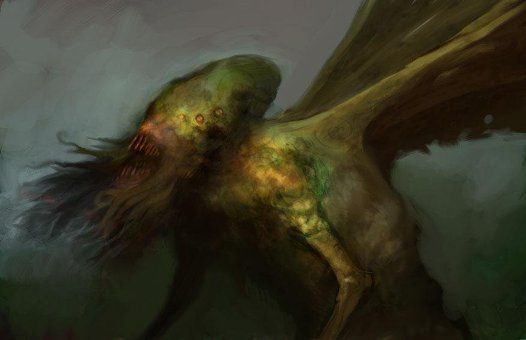R'lyeh: coordinates given as S. Latitude 49° 51′ S, Longitude 128° 34′ W....
Fact ...In 1997 Navy sensors detected a very large noise (being picked up on two different sensors 3000 miles apart) being produced at Latitude 50° S, Longitude 120° W. This sound (now known as '
Bloop') is not thought to correspond to any known living or non-living source, and as such, remains unexplained.
 Ph'nglui mglw'nafh Cthulhu R'lyeh wgah'nagl fhtagn!
Ph'nglui mglw'nafh Cthulhu R'lyeh wgah'nagl fhtagn!